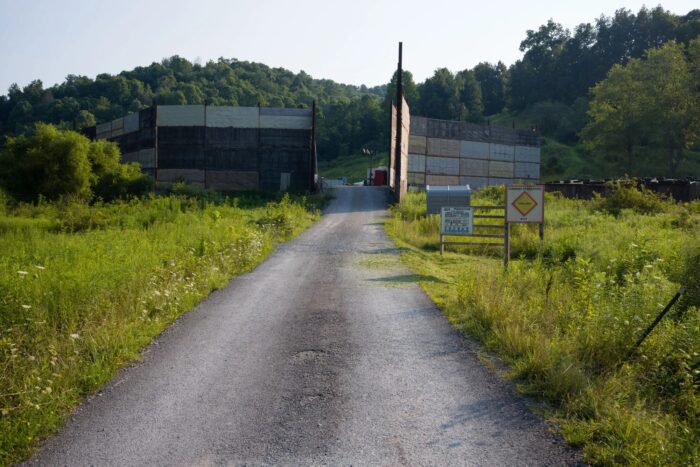Your browser doesn't support audio playback.
Four families in northern West Virginia havey filed a lawsuit against EQT, the Pittsburgh gas producer, over health impacts from fracking activity near their homes.
Curtis Tate spoke with Quinn Glabicki with Public Source, a nonprofit news site in Pittsburgh, about his reporting on the families.
This interview has been edited for length and clarity.
Tate: What led the families to take EQT to federal court?
Glabicki: I’ve been following this story for a couple years now, and I had reported pretty extensively on four families down in Knob Fork, West Virginia. Beginning in 2021 when EQT put in a nine-bore well pad down there in the hollow that they lived in, those families began to experience a number of symptoms that overlapped with one another. There were 11 family members affected by it. These four children are suing EQT because they say that they were sickened and eventually displaced from their childhood homes after the company put in a well pad in 2021 in addition to a compressor station and some open water open-top frack tanks that exist on the top of the hill.
Tate: The fracking revolution has been taking place for about 15 years. But this is more recent, right?
Glabicki: The problems, health problems, environmental issues associated with fracking, are nothing new. They’re well documented. But this is a rather recent development. You know, the industry, in broad strokes, says that a lot of those issues have been resolved, but this lawsuit begs to differ. And the members of these families would beg to differ.
Tate: Has the company or its CEO, Toby Rice, spoken to you about this?
Glabicki: Through the course of our reporting, I’ve made many, many efforts to reach Toby Rice, even approaching him at an election night party here in Pittsburgh. The company never was willing to respond to any of our inquiries. However, I did make efforts to include their perspective. They did a number of town hall meetings throughout the counties that are at the heart of their operation. So I went to a number of those, two years ago now. And what the company says is that their operations are a quote, unquote case study for how hydrocarbon production can be done responsibly.
Tate: Where are the families now?
Glabicki: They kind of scattered. I’ve been reporting on fracking for a while now. I’m based in Pittsburgh, and what drew me to this story was the overlapping symptoms. These people all live in one place. They all are reporting at once, the same symptoms, the same smells, and they’re all complaining. They all have these purple air monitors that are showing increased emissions. After a while of experiencing that, they decided to leave. So one family moved down to Paden City. Another moved to New Martinsville, and another is their cabin up in the woods, not too far. I’d say, most of them live within 30 to 45 minutes away from where they originally were.
Tate: Did they see any improvement? Is their health any better? Are they OK?
Glabicki: That’s a bit of a complicated question. So on one hand, their health has improved. The kind of daily symptoms, the dizziness, the lethargy, the respiratory issues that they were experiencing, the piercing headaches and some of these neurological issues that they had reported as well. A lot of those have subsided. But I think the concern, certainly for the kids at this point is, you know what, what of their future? One kid in particular, a 17-year-old named Garrett Hallabaugh, one of the plaintiffs in this lawsuit, he’s experienced four collapsed lungs over the past year. I visited those families two weeks ago to talk about that and to hear how life has unfolded for them since. He’s also developed a connective tissue disorder, and the families and the lawsuit links those back to the emissions that they experienced while living in Knob Fork. He has hopes of being a welder, but because of this connective tissue disorder, he says he is losing his eyesight and his ability to walk, and so there are real concerns for their future.
Tate: What sort of outcome are they seeking?
Glabicki: The lawsuit lays it out in pretty plain terms. A number of health issues, including anemia, cognitive issues, headaches, chest pain, shortness of breath, rashes, ear ringing, dizziness, nausea, depression, this whole gamut, and at the center of that is future medical monitoring. The lawsuit also seeks punitive damages for what they’ve experienced and for property damage. But if you ask the families, they tell you that their main concern is getting medical monitoring for the children, and that’s something that they’re asking the court to consider.
